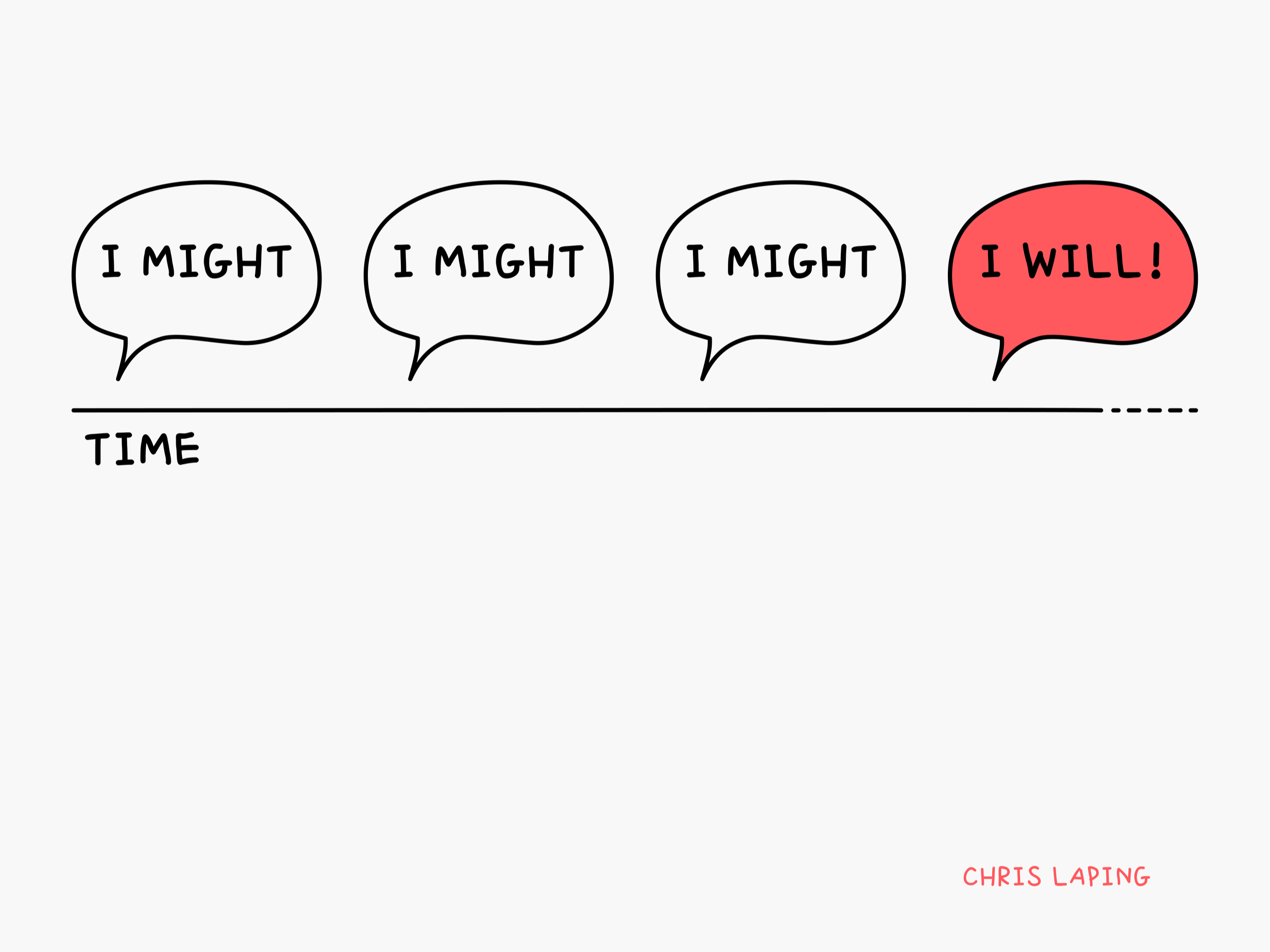Knowing when to walk away…
Hello Friend!
"I know with 100% certainty that things aren't going to get better."
My client said this on our call this week. He's been wrestling with whether to quit his executive role. The money is excellent. There's a potential equity event in a few years that could be substantial. But he's exhausted from fighting battles he knows he'll never win, from contributing to a company that doesn't value what he brings.
"So why are you still there?" I asked.
"Because what if I'm wrong? What if things change?"
I've had this exact conversation hundreds of times. With executives who've lost their spark or fallen out of love with their companies. With people who know they need to leave but can't pull the trigger.
And here's what I've learned: We don't have a quitting problem. We have a certainty problem.
The ER Doctor Who Couldn't Leave
In Annie Duke's book Quit: The Power of Knowing When to Walk Away (which I can't recommend highly enough), she tells the story of Dr. Sarah Olstyn Martinez, an ER physician who spent sixteen years doing work she genuinely loved.
Dr. Olstyn Martinez wasn't just good at her job, she was made for it. The chaos of a leading Chicago trauma center. The daily challenge of seeing humanity at its loneliest and most heartbreaking. The camaraderie of ER doctors who wore their suffering like a badge of honor.
But then her circumstances changed.
She took on administrative roles. Director of emergency services. Senior director of patient care quality across twelve emergency departments. The work expanded. The boundaries dissolved. Her ER shifts dropped to just six per month… barely enough time to do the part of medicine she'd fallen in love with.
The texts never stopped. The emails piled up. Her hair started falling out.
One night, her seven-year-old finally got her attention: "Mom. Mom? Mom! MOM!!"
When she looked up from her phone, her daughter said, "You aren't listening to me. You're always on your phone."
She was right.
Dr. Olstyn Martinez knew she needed to quit. She'd known for over a year. But she couldn't pull the trigger.
Then a friend referred her for a role at an insurance company. She aced the interviews. And suddenly, she had to decide.
That's when she reached out to Annie Duke for help.
The Question That Changes Everything
Duke asked her a simple question:
"Imagine it's a year from now and you stayed in your current job. What's the probability you're going to be unhappy?"
"100%," Dr. Olstyn Martinez said immediately.
"And if you take the new job, what's the probability you'll be unhappy a year from now?"
"I'm not sure."
"Is it 100%?"
"Definitely not."
That reframe changed everything.
She wasn't choosing between certain happiness and uncertain misery. She was choosing between guaranteed unhappiness and a real chance at something better.
The math wasn't even close.
My Own 100% Problem
I wish I'd had this framework when I was wrestling with my own decision to leave Red Robin.
I had a great boss. A brand I genuinely loved. Compensation that made leaving feel financially reckless. And a voice in my head that kept asking, "What if you're making a mistake?"
But here's what I knew with 100% certainty: I was leaving too much on the table.
Not money. Potential.
I could see exactly what my career would look like if I stayed. More of the same. Comfortable. Predictable. Safe. And that certainty that I'd never fully use my gifts, never build something of my own, never take the leap… was suffocating.
What I didn't know was whether I'd succeed on my own. Whether clients would hire me. Whether I could build something sustainable.
But the probability of fulfillment staying where I was? Zero.
The probability of fulfillment if I left? Not zero.
And that's all I needed.
What Are You 100% Certain About?
Here's the question I now ask every client who's stuck:
"What outcome are you 100% certain about if you stay?"
Not "What might happen?" Not "What if things change?"
What do you know?
Because if you know, really know, that staying guarantees more of what's making you miserable, then the decision isn't as complicated as it feels.
You're not choosing between good and bad.
You're choosing between certain misery and possible fulfillment.
And when you frame it that way, the math gets a lot clearer.
Your coach,
Chris
P.S. If this resonated, do yourself a favor and read Annie Duke's Quit: The Power of Knowing When to Walk Away. It's one of the most practical, liberating books I've read on decision-making. It'll change how you think about quitting—and staying.
P.P.S. If you're wrestling with your own "should I stay or should I go" moment and want more than a book, let’s chat.

